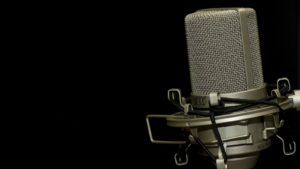
 As someone who regularly engages with new and first-time podcasters, I am frequently asked how much preparation should be done before hitting record. Often, these inquiries include a question about scriptwriting. Should episodes be completely scripted to ensure that material is covered as intended? Or, should they be recorded on-the-fly to sound more natural?
As someone who regularly engages with new and first-time podcasters, I am frequently asked how much preparation should be done before hitting record. Often, these inquiries include a question about scriptwriting. Should episodes be completely scripted to ensure that material is covered as intended? Or, should they be recorded on-the-fly to sound more natural?
Personally, I recommend a combination of both. However, there are pros and cons to each and as a podcast host, you will have to determine what works best for you. Read on for a more in-depth look at each of these methods.
Using this option, the podcast host prepares all of their content in advance and reads from a script during their recording. The benefit of having an entirely scripted episode is that your content will be covered exactly as intended. You will never need to worry about forgetting an important piece of information, or trying to properly articulate your thoughts. If you’re finding this process a bit challenging, try checking out Quill, an online service that can match you up with a professional script writer who is perfect for you and your podcast.
The downside to following a script is that your recordings may SOUND scripted to your listeners who are expecting a more natural flow of conversation. If you do feel most comfortable using this method, I recommend practicing your content out loud several times before hitting record. Making notes in your script about specific inflections to use or where to insert a pause can be helpful as well.
 For those who are confident in their ability to think on their feet, the completely unscripted option is the right choice for you. One of the benefits is that your content does not come across as forced or monotone. It also leaves room for spontaneous inspiration and discussion during the podcast.
For those who are confident in their ability to think on their feet, the completely unscripted option is the right choice for you. One of the benefits is that your content does not come across as forced or monotone. It also leaves room for spontaneous inspiration and discussion during the podcast.
An obvious risk that you take with this method is forgetting what you wanted to say. As thoroughly as you might know a topic, it is easy to miss something when you’re caught up in the moment. Because of this, my advice is always to jot down a few main points that you wish to discuss. You will be glad that you have it if you find your mind going blank in the middle of a recording. If it does, don’t feel bad! It happens to the best of us.
 The Basic Episode Plan
The Basic Episode PlanThe approach that I have settled on is a combination of the two methods. Before I record an episode, I create an outline of the main points that I wish to discuss and list them in an order that makes sense. The benefit of this method is that you will cover all intended material and still sound natural and conversational.
Here at TalkShoe, we know how much work goes into each and every episode that you record. Because of that, we are proud to offer a podcasting platform that eliminates much of the heavy lifting. With FREE unlimited hosting and storage, easy to use RSS feeds, and lots of cool extras, the TalkShoe platform lets you focus on the most important aspect – your content.